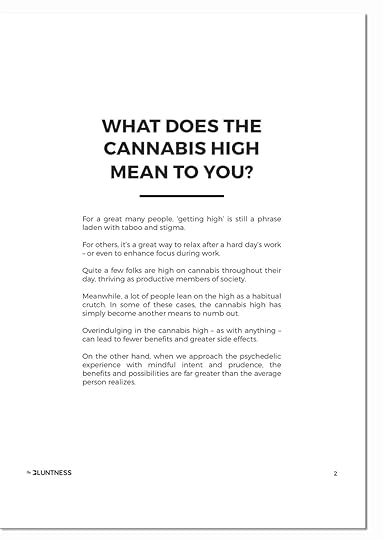Sebastian Marincolo's Blog: High Perspectives, page 2
April 23, 2021
Interview Sebastian Marincolo/The Bluntness: Altered States of Consciousness
The post Interview Sebastian Marincolo/The Bluntness: Altered States of Consciousness appeared first on HIGH PERSPECTIVES.
April 22, 2021
Interview With Gregory Frye/THE BLUNTNESS: What you are missing with Your High
The post Interview With Gregory Frye/THE BLUNTNESS: What you are missing with Your High appeared first on HIGH PERSPECTIVES.
April 19, 2021
Interview With Gregory Frye/THE BLUNTNESS: Cannabis and Creativity II
The post Interview With Gregory Frye/THE BLUNTNESS: Cannabis and Creativity II appeared first on HIGH PERSPECTIVES.
April 16, 2021
Interview With Gregory Frye/THE BLUNTNESS: Cannabis and Creativity I
The post Interview With Gregory Frye/THE BLUNTNESS: Cannabis and Creativity I appeared first on HIGH PERSPECTIVES.
April 15, 2021
Value Your High – Interview With Gregory Frye/THE BLUNTNESS
The post Value Your High – Interview With Gregory Frye/THE BLUNTNESS appeared first on HIGH PERSPECTIVES.
February 26, 2021
New Ebook “17 Mind Enhancements of the Cannabis High”
Gregory Frye is a writer, journalist, and currently serves as executive editor for The Bluntness. His ebook delivers a very perceptive and comprehensive summary of Marincolo’s research so far, well compressed in a beautiful layout featuring Marincolo’s cannabis art photography.
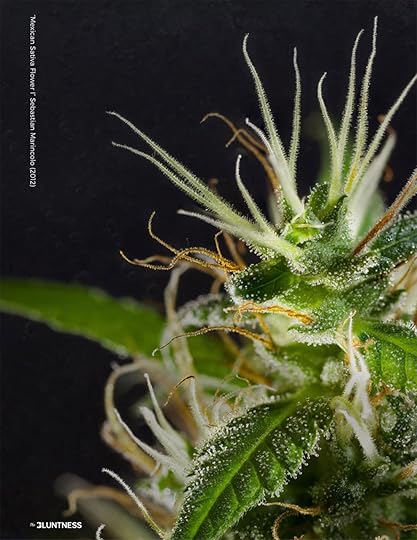 Layout showing a cropped part of “Mexican Sativa Flower”, limited art edition by Sebastián Marincolo
Layout showing a cropped part of “Mexican Sativa Flower”, limited art edition by Sebastián MarincoloFrom the announcement of the new Ebook on Sebastian Marincolo’s cannabis research:
“The Bluntness is excited to announce its brand new e-book: 17 Mind Enhancements of the Cannabis High, now available for free download.
What about the cannabis high? Safe access to cannabis is now more prevalent than ever and yet the exciting nuances of cannabis psychoactivity are incredibly misunderstood, overlooked, and stigmatized.
Some of the world’s most high-profile achievers have tapped into cannabis-infused thinking, from Bill Gates to Jay Z or Kareem Abdul-Jabbar.
Whether you’re new to cannabis or you’ve been experimenting with it for decades, this e-book will inspire how you think about and approach the cannabis high.
Take your cannabis journey to greater levels. Now available for download:
17 Mind Enhancements of the Cannabis High. Exploring the Astonishing Research of Sebastián Marincolo
Written by Gregory Frye, executive editor of The Bluntness, 17 Mind Enhancements of the Cannabis High explores the work of Cannabis Philosopher Sebastián Marincolo.
“Nobody has ever broken down the nuances of cannabis psychoactivity quite like Dr. Marincolo in what he calls a ‘bouquet of cognitive effects and enhancements,‘” Frye noted.
“It is within our nature to seek altered states. Even animals seem to enjoy getting drunk on fermented fruit. The cannabis high meanwhile is such a versatile tool – why not discover how to get the absolute most out of it?”
Now available for free download.”
If you are interested in the featured limited art cannabis photo series “The Art of the High” with visualizations of the art photos hanging on walls you can find it here.
The post New Ebook “17 Mind Enhancements of the Cannabis High” appeared first on HIGH PERSPECTIVES.
December 5, 2020
The Zen-Effect of Marijuana
„When walking, walk. When eating, eat.“
Zen proverb
One of the most predominant effects of marijuana is a hyper focusing of attention during the high. Often, this hyper focusing is experienced together with intensified or increased sensations. While you are high, the taste experience of eating chocolate or drinking red wine usually becomes not only more intense but also more complex. You can selectively attend to many more dimensions within these experiences and better explore subtle nuances. We have many reports from experienced marijuana users observing this hyper focusing on all kinds of sensations, including auditory, visual, tactile, olfactory, taste or bodily sensations. In his seminal book “The Hasheesh Eater,” the American author and psychonaut Fitz Hugh Ludlow notes:
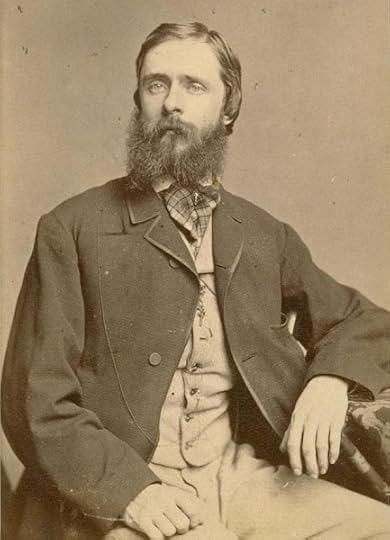 Hasheesh User Fitz Hugh Ludlow, 1836-1870
Hasheesh User Fitz Hugh Ludlow, 1836-1870“(h)asheesh always brings with it an wakening of perception which magnifies the smallest sensation till it occupies immense boundaries.”
Another marijuana user describing the stronger focus of attention during a high expressed what he likes about marijuana as follows:
“I like all sorts of things about marijuana. (…) I like the first rush when time turns slow and liquid, and my hearing goes acute, and my focus intensifies. I like the way food tastes, the way country air smells, and the way water goes down my throat cool and clean. (…) I like the way a fine single malt scotch tastes when there is a nice coating of herb on my tongue, like velvet fire.”
Hyper focusing during a Marijuana High
Generally, the hyper focusing of attention during a marijuana high leads to an intensification of sensory experiences and often to a better analytic capacity for introspectively exploring these states and processes. In addition, it can also lead to a pronounced focus on thoughts, feelings, moods, imaginations, or memories.
In his amazing article “The Effects of Marijuana on Consciousness”, psychology professor Arthur C. Hastings compared what I call a “hyperfocus” effect on attention with “psychological tunnel vision”:
“The process of attention is clearly affected by marijuana. The most obvious effect is to narrow the amount of diverse contents in the focus of attention. The person under marijuana usually perceives fewer objects of attention, which may mean physical objects, actions, social elements, emotions, etc. We have already noted this effect: a person who is high may become absorbed in an object, event, or process to the exclusion of everything else. A train of fantasy may occupy all of a person’s attention. This is a psychological analogy to tunnel vision, with the contents of the tunnel expanded.”
Hyperfocusing and Zen Buddhism
With their minds unusually bound and absorbed by sensations, thoughts or fantasies, many users have noted that they have a strong feeling of being in the here-and-now – or, if focused on their memories intensely reliving a moment of the past, being in the “here-and-then”. They generally cease to share their attention between various tasks or stimuli – they do not eat a sandwich while talking to somebody on the phone and watching television. During a high, users tend to dwell in the immediacy of the moment, fully and joyfully appreciating whatever comes to their attention. Clearly, this is one of the teachings of Zen Buddhism: to focus on one activity and to appreciate the magical sensation of the moment, to be in the here-and-now. I therefore sometimes call the hyperfocusing effect of marijuana the “Zen-Effect”. Many marijuana lovers use this effect to enrich their lives. They use it to relax and be in the here-and-now when sitting on a dune watching the sunset, to deeply explore the experience of watching a waterfall or a painting of Edgar Degas, to better enjoy intensified tactile sensations during sex, or to simply concentrate on the way legendary double bass player Scott LaFaro unfolds his full potential with the Bill Evans Trio.
Use and Abuse of the Zen-Effect
The Zen-effect of marijuana holds amazing potential for recreation, especially for a modern society which demands us to constantly share our attention, jumping from telephone and mobile calls to writing emails, engaging in chat-rooms, attending meetings, or reading notes on business network portals. Simultaneously, we are permanently distracted by advertisements lurking around every corner of our real and virtual existences. A marijuana high can be positively used to actually sit down and concentrate, to breathe, to be in the here-and-now, to come back to your senses, to intensely experience your own current bodily feelings, but also to concentrate on one’s memories, to enjoy a movie without distractions or to simply appreciate the fact that you are alive and well, sitting next to your beloved partner.
However, obviously, a marijuana high can be abused to constantly focus on the here-and-now in order to screen out problems in life. The adolescent marijuana abuser who permanently gets high to flee from problems with parents, teachers, and others is a commonly found example of abuse. Where marijuana can actually have a negative impact, that should not be underestimated. Sadly, prohibition has led to an enormous lack of objective education about marijuana, including the vital distinction between use and abuse. Many people deprived of this information had negative experiences with marijuana in their younger years and then refrained from marijuana completely and never explored the positive potential of the plant. A great number of these past abusers therefore remain sceptic regarding this potential.
The Zen-effect is a good case to illustrate that the effects of marijuana can only be profitable if users learn and understand how to use the marijuana high and productively integrate it into their lives. Scientific investigations in the last few decades have almost exclusively been driven by a prohibitionist attitude based on misconceptions resulting from a long-term disinformation campaign against marijuana. Certainly, it is interesting to understand the risks of marijuana consumption, yet such studies were almost exclusively designed to show for which activities a marijuana high may not really be helpful, or even detrimental.
Re-focusing on the Potential of a Marijuana High
We as a society need to free ourselves from the old myths concerning cannabis, myths that have been installed by a decades-long disinformation campaign. This propaganda has locked our focus on risks – risks that have to a large degree been invented by spin doctors. We need to shift our attention. We have to start investigating the potential of marijuana – not only for industrial use or for various “physical” medical uses, but also the potential of the marijuana high – for inspirational, recreational, as well as psychological medical uses. Of course, we should not exclusively hyperfocus on the positive potential – we still want to know more about possible risks and therefore be able to educate the public about these risks – but it is now time to take a deeper look and explore the positive potential of the high as an altered state of consciousness. So far, the prohibitionists are still making the important decisions concerning the course of scientific research. They should be reminded of the words of the Chinese philosopher Lao Tsu in his famous book Tao Teh King, a dictum which holds true not only for the subject of marijuana:
“If something exists which cannot be fully revealed to him with his viewpoint, he does not demand of it that it be nothing but what it seems to him.”
Cross, Mackkenzie (2010) “What I like about Marijuana”, in: Grinspoon, Lester (2014) (ed.), marijuana-uses.com
Hastings, Arthur C. (1969) “The Effects of Marijuana on Consciousness.” In Charles Tart (1969/1990), Altered States of Consciousness, HarperCollins, San Francisco, Third Edition 1990, 407-32. Hasting’s incredibly insightful article is a must-read for anybody interested in the psychological marijuana high.
The post The Zen-Effect of Marijuana appeared first on HIGH PERSPECTIVES.
June 30, 2020
For Lester Grinspoon. Your Light is Here to Stay.
My dear friend Lester Grinspoon peacefully passed away in the presence of his wife Betsy on June 25th, one day after his 92nd birthday.
I was about to call him on that very day when I heard the news.
I’m still in shock. In the last years I had tried to prepare myself for this to happen. My rational mind knew it would happen sometimes. But my childish heart was firmly convinced that Lester was invincible.
I’d like to share here some thoughts and personal memories about Lester.
A dangerous drug?
In 1967, Lester was still convinced that cannabis was a dangerous drug and so he set out to convince his best friend Carl Sagan to refrain from using it. Sagan, himself an enthusiastic user of cannabis for inspirational purposes, convinced Lester to reconsider the case and frankly offered him the joint he was smoking in front of him.
After meticulous research, Lester, then an associate professor of psychiatry at Harvard medical school, found that he had been brainwashed by the government and that almost everything he thought he knew about the plant and its effects was wrong. He would proceed to publish his seminal book “Marihuana Reconsidered” in 1971. It is one of the best-researched books and one of the most courageous books I’ve ever read. It also incorporates an unusual research approach with its extensive investigation and thoughtful assessment of literary accounts of the acute effects of the cannabis high. Lester’s approach, an approach which he would later extend in his website projects, helps us to come to a deeper understanding of the cannabis high, and it also beautifully shows how much the high can mean to the lives of those who have learned to use it.
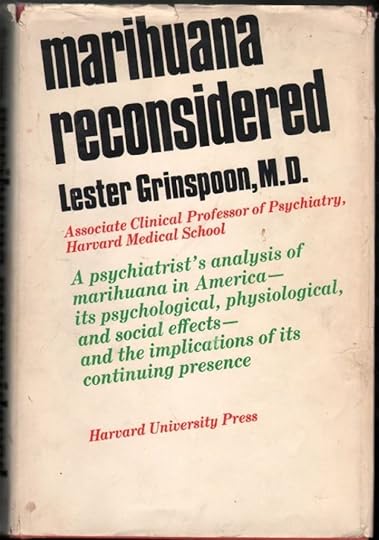
Marijuana Reconsidered became a bestseller and even angered President Nixon, who had just started his so called “War on Drugs” with even harder punishments for cannabis users than those that were already in place. In his chapter “The Question of Legalization”, Lester had come to the conclusion:
“A more rational approach to the problem of smoking of marijuana in the United States would include legalization of the use of marijuana, regulation of its distribution, and the development of sound educational programs about it.”
Nixon was furious after reading a review of Lester’s book. “Every one of the bastards that are out for the legalization of marijuana is Jewish.” “What the Christ is the matter with the Jews?”
Nixon’s „war on drugs“ of course was not a war on drugs. It was a cleverly designed slogan for a police-enforced repression of certain groups of people. In a 1994 interview with Dan Baum, Nixon’s top advisor John Ehrlichmann said:
“The Nixon campaign in 1968, and the Nixon White House after that, had two enemies: the antiwar left and black people. (…) We knew we couldn’t make it illegal to be either against the war or blacks, but by getting the public to associate the hippies with marijuana and blacks with heroin, and then criminalizing both heavily, we could disrupt those communities. We could arrest their leaders, raid their homes, break up their meetings, and vilify them night after night on the evening news. Did we know we were lying about the drugs? Of course we did.”
Marihuana Reconsidered contains wonderful descriptions of the acute state of the cannabis high including many literary accounts from Baudelaire to Allen Ginsberg, as well as chapters on the history of the plant in the US, the place of cannabis in medicine, the campaign against marijuana, and many other important aspects, including the debates around addiction and psychosis. Almost 50 years after its publication it is still a treasure trove for researchers from many fields interested in the topic.
Meeting Lester
When I contacted Lester in 2008 I had already researched the cannabis high for several years and my first book “High. Insights on Marijuana” was almost completed. My initial interest in cannabis had been sparked in the late 1990ies when I had experienced various spontaneous insights during a cannabis high as well as other interesting cognitive enhancements. I had specialized in the philosophy of mind and consciousness, and during the preparation of my PhD thesis in the late 1990ies I had started to become more interested in the temporary effects marijuana had on my consciousness.
I had been yet unaware of Lester’s work during that time, and I was not aware of the philosopher and essayist Walter Benjamin as well as Lester’s best friend Carl Sagan, who had both experienced and written about the phenomenon of insights during cannabis high. In my first book, I described and deeper investigated a whole bouquet of mind-enhancements during a high, including the enhancement of episodic memory, a stronger attentional focus, the enhancement of pattern recognition, imagination, introspection, creativity, empathic understanding, as well as the enhancement of our ability to produce deep, spontaneous insights.
Lester responded to my first mail to him with much interest, asking me to please give him a call as soon as possible. Lester and I were both so excited when we got on the phone. In the absence of good research about cannabis during the prohibition, he had started to collect anecdotal reports about the manifold medical uses of cannabis rxmarijuana.com, another treasure trove still), but he was so enthusiastic about the enhancements of cannabis that he started his own collection of anecdotes and essays on those specific uses of cannabis, marijuana-uses.com. The latter website would become a main source for my research, and that’s what Lester had intended to do: to assemble a rich resource of data for scientists and laymen to draw on.

Lester and I talked. What a meeting. I had given up my career as a philosopher over researching the cannabis high. The taboo was still too strong, nobody listened, and despite the backing of my prominent philosophical mentors in Germany and the U.S. I had never managed to get anybody to fund my research. Lester told me about his struggles and that he never got promoted to full professorship probably because of his research and publications. We had both got hooked on the fascinating truth about something that many powerful people did not want to be true.
At the end of our first telephone conversation, Lester asked me to co-edit a book with a selection of the essays on his website marijuana-uses.com. I gladly accepted. His title for the book, which would have been his last book publication, was “Marijuana the Blessing”. Although we almost finished the manuscript after a year, the book never appeared, mostly because of copyright issues.
We kept in touch and skyped frequently over the years. Lester followed my research and publications with much interest and enthusiasm and we kept on conversing about cannabis, politics, and life. We became friends.
Lester’s legacy, seen from a possible future
A few years later in 2013, Lester would help me with his appraisal and a beautiful foreword for my second book about the positive potential of the marijuana high, published by one of the biggest publishing houses in Germany in 2013. His support opened a lot of doors for me and helped me to have some impact on the public image of cannabis in Germany, Switzerland and Austria and in other European countries.
When we finally met in person in Boston in his home in 2016 we had already known each other for 8 years.
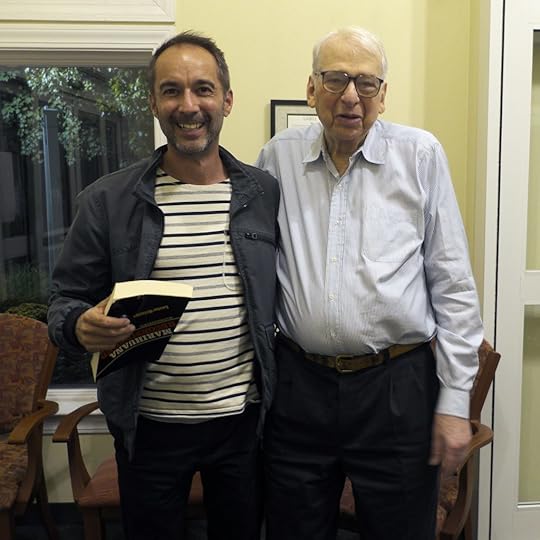
For over a decade we discussed the enhancements of a cannabis high we had both experienced and which I had set out to further investigate and explain on the basis of evolutionary biology, the endocannabinoid system, the cognitive sciences, theories in the philosophy of mind, and many other sources. These enhancements and their research were crucially important to Lester. I think if we look at his legacy, it cannot be stressed enough how much his research effort for these enhancement uses alone may help us all in the next decades.
Lester’s work has significantly changed the course of history. His writings about medical cannabis and his political engagement as well as his gracious support for so many medical professionals, scientists, and activists profoundly helped to pave the way for hundreds of thousands of cannabis patients to get access and to profit from cannabinopathic medicine today. In a few years, hopefully, there will be many millions of patients with access to the incredible healing potential of the cannabis plant. Lester’s scientific contributions are outstanding, and so are his contributions for changing policies. Hopefully, hundreds of millions of people, maybe billions (and billions) of people around the world will profit from the end of cannabis prohibition in a not so distant future.
The profound impact of his influence will become better visible in the future. It could go well beyond what we are seeing today. Lester also argued, convincingly, that cannabis could be very useful in psychotherapy, and his book “Psychedelic Drugs Reconsidered” (1997) helped to lead the way for what we are beginning to experience now, the success story of psychedelics in medicine. We are only at the beginning of this revolution in this area of medicine.
In his Pulitzer Price winning book “The Dragons of Eden” (1977), Lester’s friend Carl Sagan suggested in a short footnote that during a marijuana high the left brain hemisphere may be suppressed and the right hemisphere functions may therefore actually be enhanced. Sagan’s hypothesis was based on his own experiences with marijuana, but also on his profound knowledge of the available neurological research of the difference in cognitive processing in the left and right hemisphere of the human brain.
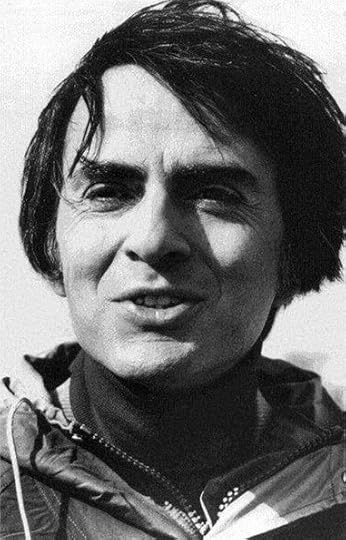
Carl Sagan in his series “Cosmos”, 1980
In my book “What Hashish Did To Walter Benjamin”(2015) I have argued that many decades after Carl Sagan’s hypothesis, we should reconsider it. It certainly makes a lot of sense given our new knowledge about the difference in information processing in the left and the right brain hemisphere. The cognitive enhancements so often reported by users during a high, the enhancements Lester and I had discussed for years, mostly concern functions predominantly subserved by the right brain hemisphere – imagination, introspection, empathic understanding, humor, pattern recognition, etc.
In his eminent book “The Master and his Emissary. The Divided Brain and the Making of the Western World (2009)” psychiatrist Iain McGilchrist investigates the differences in processing styles in the left and right hemisphere based on recent neuro- and cognitive science. He goes on to argue that throughout the history of the Western world there were periods when a pronounced left hemispheric style of thinking became too dominant in our culture – and that we are now in one of those periods, a time in which our thinking has become too detached, mechanistic, unempathic. Could a more widespread and educated use of cannabis help us all to find a better balance and heal as a society?
Sagan’s hypothesis still awaits further investigation, but for me, one thing is clear: the enhancements cannabis can bring during a high can not only immensely positively affect the lives of those individuals who are using it in an educated way, but they could potentially help to change our culture for the better. If we would leave behind prohibition and start to educate the public better about the true potential as well as the true risks of cannabis and give them an informed perspective, this could have a deep impact on our collective consciousness.
We have already seen the impact on cannabis on our society in the late sixties, but also in the early evolution of jazz at the beginning of the 20th century. The enhancements of a cannabis high had a positive impact on many artists, philosophers, musicians, and other luminaries and through them, on many societies in the world for thousands of years, in India, Africa, and many other regions in the world. Cannabis user Paul McCartney once said that cannabis was a crucial catalyst to change the Beatles’ attitude towards life, and that it profoundly changed their music. Think about how much impact the Beatles alone had on our modern world, all over the planet. And again, when we look at Lester’s influence, let’s not forget that in the late 60ies he helped John Lennon as an expert witness for John Lennon’s defense in Lennon’s deportation hearings, ultimately helping Lennon to stay in the U.S.
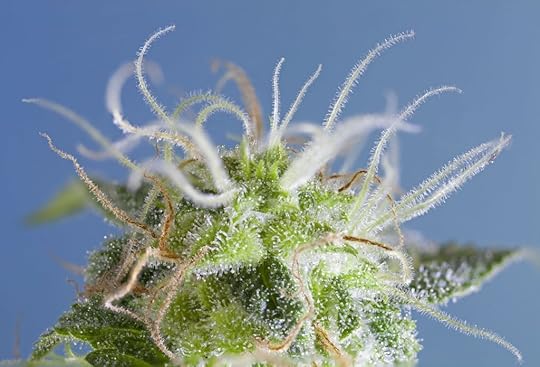
Flower of a Dr. Grinspoon cannabis variety named after Lester
(photo copyright Sebastian Marincolo)
In a few decades, years after the cannabis prohibition may have ended in many more countries, we may see that a more educated and informed use of cannabis by millions of people, enhancement users as well as medical users, has played a huge role of transforming our societies for the better.
Then, we would look back to Lester’s influence with even more awe. And maybe somebody will write a biography about him, entitled: Lester Grinspoon Reconsidered. Or, maybe, Lester Grinspoon the Blessing. Sadly, we know that this may or may not happen: even today, human societies do not seem to behave very rational and sane.
My shock and my pain over loosing Lester as a friend run deep. We would have all needed him, now more than ever in these grim times. His intellectual honesty, his brilliance, knowledge, warmth, energy, his outgoing personality, his passion and his vision were a guiding light to me as well as to everybody else who knew him or his work.
But we have his work – more than 150 articles and 11 books. I strongly encourage everybody to read it.
And we now know about his life – an outstanding, courageous and extraordinary example of how much a human can be if (s)he passionately pursues to seek the truth without any intellectual and moral compromise, against all odds.
For me, Lester is here to stay. I will keep on talking to him, silently, and ask myself what he would have said about my new idea, essay, or book. I feel truly blessed to have had him in my life as the wonderful mentor and friend he was.
I couldn’t have wished for a better one.
For those interested in Lester’s extraordinary life please read David Bienenstock’s beautiful and comprehensive obituary: https://www.leafly.com/news/politics/dr-lester-grinspoon-encouraged-america-to-reconsider-marijuana.
My heart goes out to Lester’s wonderful wife Betsy, his sons Peter and David and everyone else who was close to him.
The post For Lester Grinspoon. Your Light is Here to Stay. appeared first on HIGH PERSPECTIVES.
For Lester Grinspoon. Your Light Is here to Stay.
My dear friend Lester Grinspoon peacefully passed away in the presence of his wife Betsy on June 25th, one day after his 92nd birthday.
I was about to call him on that very day when I heard the news.
I’m still in shock. In the last years I had tried to prepare myself for this to happen. My rational mind knew it would happen sometimes. But my childish heart was firmly convinced that Lester was invincible.
I’d like to share here some thoughts and personal memories about Lester.
A dangerous drug?
In 1967, Lester was still convinced that cannabis was a dangerous drug and so he set out to convince his best friend Carl Sagan to refrain from using it. Sagan, himself an enthusiastic user of cannabis for inspirational purposes, convinced Lester to reconsider the case and frankly offered him the joint he was smoking in front of him.
After meticulous research, Lester, then an associate professor of psychiatry at Harvard medical school, found that he had been brainwashed by the government and that almost everything he thought he knew about the plant and its effects was wrong. He would proceed to publish his seminal book “Marihuana Reconsidered” in 1971. It is one of the best-researched books and one of the most courageous books I’ve ever read. It also incorporates an unusual research approach with its extensive investigation and thoughtful assessment of literary accounts of the acute effects of the cannabis high. Lester’s approach, an approach which he would later extend in his website projects, helps us to come to a deeper understanding of the cannabis high, and it also beautifully shows how much the high can mean to the lives of those who have learned to use it.

Marijuana Reconsidered became a bestseller and even angered President Nixon, who had just started his so called “War on Drugs” with even harder punishments for cannabis users than those that were already in place. In his chapter “The Question of Legalization”, Lester had come to the conclusion:
“A more rational approach to the problem of smoking of marijuana in the United States would include legalization of the use of marijuana, regulation of its distribution, and the development of sound educational programs about it.”
Nixon was furious after reading a review of Lester’s book. “Every one of the bastards that are out for the legalization of marijuana is Jewish.” “What the Christ is the matter with the Jews?”
Nixon’s „war on drugs“ of course was not a war on drugs. It was a cleverly designed slogan for a police-enforced repression of certain groups of people. In a 1994 interview with Dan Baum, Nixon’s top advisor John Ehrlichmann said:
“The Nixon campaign in 1968, and the Nixon White House after that, had two enemies: the antiwar left and black people. (…) We knew we couldn’t make it illegal to be either against the war or blacks, but by getting the public to associate the hippies with marijuana and blacks with heroin, and then criminalizing both heavily, we could disrupt those communities. We could arrest their leaders, raid their homes, break up their meetings, and vilify them night after night on the evening news. Did we know we were lying about the drugs? Of course we did.”
Marihuana Reconsidered contains wonderful descriptions of the acute state of the cannabis high including many literary accounts from Baudelaire to Allen Ginsberg, as well as chapters on the history of the plant in the US, the place of cannabis in medicine, the campaign against marijuana, and many other important aspects, including the debates around addiction and psychosis. Almost 50 years after its publication it is still a treasure trove for researchers from many fields interested in the topic.
Meeting Lester
When I contacted Lester in 2008 I had already researched the cannabis high for several years and my first book “High. Insights on Marijuana” was almost completed. My initial interest in cannabis had been sparked in the late 1990ies when I had experienced various spontaneous insights during a cannabis high as well as other interesting cognitive enhancements. I had specialized in the philosophy of mind and consciousness, and during the preparation of my PhD thesis in the late 1990ies I had started to become more interested in the temporary effects marijuana had on my consciousness.
I had been yet unaware of Lester’s work during that time, and I was not aware of the philosopher and essayist Walter Benjamin as well as Lester’s best friend Carl Sagan, who had both experienced and written about the phenomenon of insights during cannabis high. In my first book, I described and deeper investigated a whole bouquet of mind-enhancements during a high, including the enhancement of episodic memory, a stronger attentional focus, the enhancement of pattern recognition, imagination, introspection, creativity, empathic understanding, as well as the enhancement of our ability to produce deep, spontaneous insights.
Lester responded to my first mail to him with much interest, asking me to please give him a call as soon as possible. Lester and I were both so excited when we got on the phone. In the absence of good research about cannabis during the prohibition, he had started to collect anecdotal reports about the manifold medical uses of cannabis rxmarijuana.com, another treasure trove still), but he was so enthusiastic about the enhancements of cannabis that he started his own collection of anecdotes and essays on those specific uses of cannabis, marijuana-uses.com. The latter website would become a main source for my research, and that’s what Lester had intended to do: to assemble a rich resource of data for scientists and laymen to draw on.

Lester and I talked. What a meeting. I had given up my career as a philosopher over researching the cannabis high. The taboo was still too strong, nobody listened, and despite the backing of my prominent philosophical mentors in Germany and the U.S. I had never managed to get anybody to fund my research. Lester told me about his struggles and that he never got promoted to full professorship probably because of his research and publications. We had both got hooked on the fascinating truth about something that many powerful people did not want to be true.
At the end of our first telephone conversation, Lester asked me to co-edit a book with a selection of the essays on his website marijuana-uses.com. I gladly accepted. His title for the book, which would have been his last book publication, was “Marijuana the Blessing”. Although we almost finished the manuscript after a year, the book never appeared, mostly because of copyright issues.
We kept in touch and skyped frequently over the years. Lester followed my research and publications with much interest and enthusiasm and we kept on conversing about cannabis, politics, and life. We became friends.
Lester’s legacy, seen from a possible future
A few years later in 2013, Lester would help me with his appraisal and a beautiful foreword for my second book about the positive potential of the marijuana high, published by one of the biggest publishing houses in Germany in 2013. His support opened a lot of doors for me and helped me to have some impact on the public image of cannabis in Germany, Switzerland and Austria and in other European countries.
When we finally met in person in Boston in his home in 2016 we had already known each other for 8 years.

For over a decade we discussed the enhancements of a cannabis high we had both experienced and which I had set out to further investigate and explain on the basis of evolutionary biology, the endocannabinoid system, the cognitive sciences, theories in the philosophy of mind, and many other sources. These enhancements and their research were crucially important to Lester. I think if we look at his legacy, it cannot be stressed enough how much his research effort for these enhancement uses alone may help us all in the next decades.
Lester’s work has significantly changed the course of history. His writings about medical cannabis and his political engagement as well as his gracious support for so many medical professionals, scientists, and activists profoundly helped to pave the way for hundreds of thousands of cannabis patients to get access and to profit from cannabinopathic medicine today. In a few years, hopefully, there will be many millions of patients with access to the incredible healing potential of the cannabis plant. Lester’s scientific contributions are outstanding, and so are his contributions for changing policies. Hopefully, hundreds of millions of people, maybe billions (and billions) of people around the world will profit from the end of cannabis prohibition in a not so distant future.
The profound impact of his influence will become better visible in the future. It could go well beyond what we are seeing today. Lester also argued, convincingly, that cannabis could be very useful in psychotherapy, and his book “Psychedelic Drugs Reconsidered” (1997) helped to lead the way for what we are beginning to experience now, the success story of psychedelics in medicine. We are only at the beginning of this revolution in this area of medicine.
In his Pulitzer Price winning book “The Dragons of Eden” (1977), Lester’s friend Carl Sagan suggested in a short footnote that during a marijuana high the left brain hemisphere may be suppressed and the right hemisphere functions may therefore actually be enhanced. Sagan’s hypothesis was based on his own experiences with marijuana, but also on his profound knowledge of the available neurological research of the difference in cognitive processing in the left and right hemisphere of the human brain.
 Carl Sagan in his series “Cosmos”, 1980
Carl Sagan in his series “Cosmos”, 1980In my book “What Hashish Did To Walter Benjamin”(2015) I have argued that many decades after Carl Sagan’s hypothesis, we should reconsider it. It certainly makes a lot of sense given our new knowledge about the difference in information processing in the left and the right brain hemisphere. The cognitive enhancements so often reported by users during a high, the enhancements Lester and I had discussed for years, mostly concern functions predominantly subserved by the right brain hemisphere – imagination, introspection, empathic understanding, humor, pattern recognition, etc.
In his eminent book “The Master and his Emissary. The Divided Brain and the Making of the Western World (2009)” psychiatrist Iain McGilchrist investigates the differences in processing styles in the left and right hemisphere based on recent neuro- and cognitive science. He goes on to argue that throughout the history of the Western world there were periods when a pronounced left hemispheric style of thinking became too dominant in our culture – and that we are now in one of those periods, a time in which our thinking has become too detached, mechanistic, unempathic. Could a more widespread and educated use of cannabis help us all to find a better balance and heal as a society?
Sagan’s hypothesis still awaits further investigation, but for me, one thing is clear: the enhancements cannabis can bring during a high can not only immensely positively affect the lives of those individuals who are using it in an educated way, but they could potentially help to change our culture for the better. If we would leave behind prohibition and start to educate the public better about the true potential as well as the true risks of cannabis and give them an informed perspective, this could have a deep impact on our collective consciousness.
We have already seen the impact on cannabis on our society in the late sixties, but also in the early evolution of jazz at the beginning of the 20th century. The enhancements of a cannabis high had a positive impact on many artists, philosophers, musicians, and other luminaries and through them, on many societies in the world for thousands of years, in India, Africa, and many other regions in the world. Cannabis user Paul McCartney once said that cannabis was a crucial catalyst to change the Beatles’ attitude towards life, and that it profoundly changed their music. Think about how much impact the Beatles alone had on our modern world, all over the planet. And again, when we look at Lester’s influence, let’s not forget that in the late 60ies he helped John Lennon as an expert witness for John Lennon’s defense in Lennon’s deportation hearings, ultimately helping Lennon to stay in the U.S.
 Flower of a Dr. Grinspoon cannabis variety named after Lester
Flower of a Dr. Grinspoon cannabis variety named after Lester (photo copyright Sebastian Marincolo)
In a few decades, years after the cannabis prohibition may have ended in many more countries, we may see that a more educated and informed use of cannabis by millions of people, enhancement users as well as medical users, has played a huge role of transforming our societies for the better.
Then, we would look back to Lester’s influence with even more awe. And maybe somebody will write a biography about him, entitled: Lester Grinspoon Reconsidered. Or, maybe, Lester Grinspoon the Blessing. Sadly, we know that this may or may not happen: even today, human societies do not seem to behave very rational and sane.
My shock and my pain over loosing Lester as a friend run deep. We would have all needed him, now more than ever in these grim times. His intellectual honesty, his brilliance, knowledge, warmth, energy, his outgoing personality, his passion and his vision were a guiding light to me as well as to everybody else who knew him or his work.
But we have his work – more than 150 articles and 11 books. I strongly encourage everybody to read it.
And we now know about his life – an outstanding, courageous and extraordinary example of how much a human can be if (s)he passionately pursues to seek the truth without any intellectual and moral compromise, against all odds.
For me, Lester is here to stay. I will keep on talking to him, silently, and ask myself what he would have said about my new idea, essay, or book. I feel truly blessed to have had him in my life as the wonderful mentor and friend he was.
I couldn’t have wished for a better one.
For those interested in Lester’s extraordinary life please read David Bienenstock’s beautiful and comprehensive obituary: https://www.leafly.com/news/politics/dr-lester-grinspoon-encouraged-america-to-reconsider-marijuana.
My heart goes out to Lester’s wonderful wife Betsy, his sons Peter and David and everyone else who was close to him.
The post For Lester Grinspoon. Your Light Is here to Stay. appeared first on HIGH PERSPECTIVES.
December 26, 2018
Now Online: New Interview for Aidan McCullen/ The Innovation Show
The former Irish international and professional rugby player Aidan McCullen from theinnovationshow.io recently contacted me to ask for an interview. Aidan is recognised as a pioneer in digital media marketing solutions, products and business models with a 10-year career in that field. His Innovation Show is a weekly show interviewing leaders in their fields, authors, renowned professors, inventors, innovators, change-makers and mavericks to inspire, educate and inform the business world and the curious.
I highly recommend to browse his innovationshow.io site archive to also look out for great interviews of various other authors including Daniel Siegel, Alan Schwarz, and Anne Janzer.
Listen to my 45 min interview about the positive potential of cannabis and some other related topics here:
Soundcloud https://lnkd.in/gBbTTuF
Spotify http://spoti.fi/2rXnAF4
iTunes https://apple.co/2gFvFbO
Tunein http://bit.ly/2rRwDad
Share this if you feel it is interesting for some people you know! Thanks!
The post Now Online: New Interview for Aidan McCullen/ The Innovation Show appeared first on HIGH PERSPECTIVES.
High Perspectives
- Sebastian Marincolo's profile
- 14 followers


